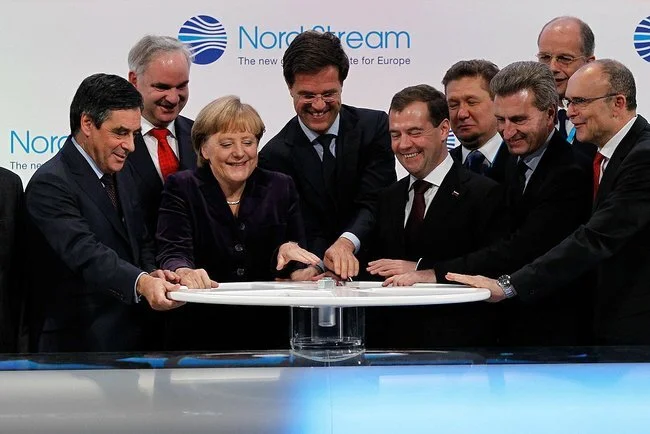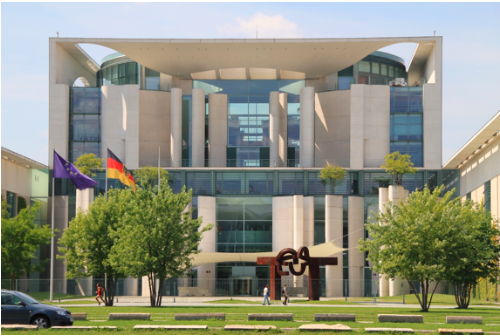Hannes Swoboda discusses NATO's and EU's values and interests concerning the Western Balkans.
Northstream 2, Europa und die USA
Buchbesprechung: "The Room where it happened: A White House Memoir" - John Bolton
Der Rechtsanwalt John Bolton hatte hohe politische Funktionen in allen republikanischen Regierungen seit Ronald Reagan inne. 2005/6 war er Botschafter der USA bei den Vereinten Nationen, als er schon klarmachte, dass er nicht viel von der multilateralen Organisation hielt, hatte sie doch den Irakkrieg von George W. Bush nicht gebilligt. Donald Trump machte ihn 2018 zum Nationalen Sicherheitsberater, ließ ihn aber 2019 wieder fallen. Das Buch verdeutlicht warum. Bolton wollte nicht nur Teil der Regierung sondern der Fahrer sein (3). Das konnte sich ein Präsident Trump aber nicht gefallen lassen.
Belarus: Ongoing developments after the presidential elections🎬
International Youth Day - Statement by President of te Youth Educational Forum in North Macedonia
Strategic Dilemmas facing the UN in the Post-Corona World 🎬
The COVID-19 pandemic has disrupted the world more than any event since World War II. Among other impacts, it has had profound geopolitical implications for the United Nations and the Security Council – the bedrock of peace and security in the international legal and political order. To better understand these impacts and implications, the Minsk Dialogue Council on International Relations, KAS Belarus, and the IIIP co-hosted a virtual panel discussion as part of The World HandCOV’d series.
Ein neuer Weg für Europa? Die deutsche Ratspräsidentschaft in unsicheren Zeiten 🎬
Am 1. Juli 2020 hat Deutschland den EU-Ratsvorsitz von Kroatien übernommen, am 1. Jänner 2021 wird Slowenien und dann Portugal folgen. Der Ratsvorsitz wird, wenig überraschend, seinen Fokus auf die Bewältigung der Covid-19 Krise - Eindämmung der Pandemie und die Stärkung der Resilienz Europas – setzen. Die Krise hat einmal mehr gezeigt, dass Außen- und Sicherheitspolitik weit mehr beinhaltet als Verteidigung, dass Kooperation auch mit den Nachbarstaaten der EU unabdingbar ist, um den alten und neuen Herausforderungen entgegentreten zu können. In Zeiten der zunehmenden Abkehr eines multilateralen Systems, demokratiepolitisch bedenklichen Entwicklungen in Ländern der östlichen Partnerschaft, Russlands und des westlichen Balkans, dem Aufstieg Chinas, Kriegen und Krisen an Europas Rändern, das Ende von Abrüstungsverträgen aber auch Klimawandel und Migration muss die EU zu einer starken gemeinsamen Außenpolitik finden.
The Belgrade-Pristina Dialogue. Can an agreement finally be reached? 🎬
The Belgrade-Pristina dialogue started in March 2011 with the European Union playing the role of mediator. Those first meetings in Brussels were the first contacts made between Serbian and Kosovar officials since Kosovo’s declaration of independence in 2008. The dialogue can be described as a turbulent but much needed discussion between the two parties to solve territorial disputes and free both countries’ paths to EU membership.
Young Generations for the New Balkans Vision 2030 - Summer Supplement
The Western Balkans Initiative, which is sponsored by the International Institute for Peace (IIP), the Karl Renner Institute, and the Austrian Institute for International Affairs (oiip), published its policy paper Young Generation for the New Balkans Vision 2030: Towards Alternative Horizons in December 2019. Since then, both the Initiative and the region itself have undergone important developments, changes, and updates. Within the region, a number of significant events have taken place this year, but the outbreak of the Covid-19 pandemic and its resultant consequences have had a dramatic impact on the political, social, and economic situation in the six countries of the region.
Presidential elections, protests, and the pandemic: How will Belarus look after August 9th? 🎬
During the discussion, the panelists will report on ongoing developments in the electoral process in Belarus and reflect on the challenges this presidential campaign poses for the current regime, opportunities and obstacles for alternative political forces, economic hardships for the population, the effects of the pandemic, and the role of external actors, in what looks like a changing political situation in the country.











